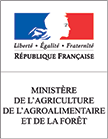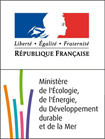Environmental sustainability is central to the Sustainable Development Goals (SDGs) and climate change negotiations. Landscape management to improve tree cover is a competitive advantage for livelihoods, in particular when valuable trees can deliver the basic human needs for food, water, health and shelter and cash return.
Both the Climate Change Convention (UNFCCC) and the SDGs seek to provide tools and concepts for allocating and managing land sustainably to achieve social, economic, and environmental objectives in areas where agriculture, and other productive land uses often lead to environmental and biodiversity tradeoffs.
In many regions the future of biodiversity, ecosystem services and communities’ resilience to climate change needs to be based on improved land management. By restoring degraded lands through tree-based improved management, we can address both social and environmental challenges without compromising current and future communities’ practices and needs.
This session will be an open platform for discussing farmland restoration through various agroforestry practices. An inclusive and multi-perspectives approach will be used to nudge advanced knowledge on improving food security and economic return together with biodiversity provision of ecosystem services through tree-based farmland restoration.
In this session, we focus on tree-based approaches to regaining ecological functionality and enhancing human well-being across degraded farming landscapes in the tropics. Four key aspects will be of paramount significance in the Discussion Forum:
- Practices for restoration (options by context)
- Policy and institutional aspects of landscape restoration through agroforestry
- Financing aspects of agroforestry-based landscape restoration
- Technical and scientific aspects of landscape restoration
Different stakeholders will be invited to discuss policy-relevant scenarios for suited contextual actions that can lead to positive transformational change across farming landscapes. After two 15 minute keynote presentations, three case studies will be introduced (7 minutes each):
- Sahel Farmer Managed Natural Regeneration (FMNR) from Niger or Burkina Faso
- Humbo restoration scheme or Northern Ethiopia
- Shinyanga restoration program, Tanzania
This will be followed by a panel discussion.
Key questions addressed
- How to identify and use specific criteria to evaluate tree-based land restoration and rehabilitation undertaken with a landscape perspective in farming lands?
- What are the success criteria, enabling conditions, challenges and barriers of tree-based farmland restoration in developing countries?
- What is the way forward in promoting the role of agroforestry in the restoration of degraded landscapes in the tropics?
Background reading
- Beyond deforestation: restoring forests and ecosystem services on degraded land
- Solutions for Sustainable Agriculture and Food Systems – SDSN
- Agroforestry solutions to address food security and climate change challenges in Africa
- Climate-smart landscape: Multifunctionality in Practice
- Leveraging landscapes: A systems approach to drivers of change
- Prospects for agroforestry in REDD+ landscapes in Africa





































